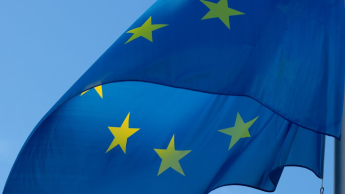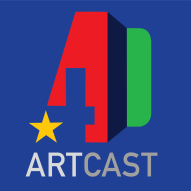Europe is a driving force for innovation in Issy
These collaborative projects, led through Issy Media, the semi-public company in charge of communication and innovation, with other cities in Europe, private businesses and research organizations, aimed mostly to experiment, test and deploy new services or technologies intended to improve the daily lives of residents.
By being part of a European cooperation approach, the City thus benefits from funding and good practices which allow it to stay one step ahead of other French municipalities.
The objective is indeed anticipation of new uses, to modernize local government and to strengthen its attractivenss.
Through this process of Test & Learn, Issy has acquired a real expertise enabling it to experiment and deploy services digital in real conditions, but also to evaluate their effectiveness.
Innovation is an integral part of Issy's DNA, which can be seen on a European scale as a laboratory of ideas and a field of experimentation to meet new urban challenges, both in terms of mobility issues and on the development of useful and relevant digital services.
The city of Issy-les-Moulineaux is also recognized in Brussels as one of the most advanced French cities.
It benefits, as an example, from the European label " Living Lab ", a method which consists of innovating in collaborative mode, appears in the list of European smart cities participating in Sino-European cooperation on the subject, and participates in the Intelligent Cities Challenge program.
Currently, the City is participating in several European projects related to mobility, open data and Li-Fi technology.
ArtCast4D (2022-2025): Bringing new forms of artistic expression to the citizens of Issy-les-Moulineaux
The city of Issy-les-Moulineaux has a very important cultural offer with notably the French Museum of the Playing Card, the PACI Charles Aznavour, the media libraries or through the many cultural events that take place throughout the year, such as the Book Festival, exhibitions and meetings with local authors.
The ArtCast4D project aims to further strengthen this cultural offer by enabling young Isséens to learn coding and programming while highlighting the city’s culture and especially the Museum’s collections by creating various attractions such as or interactive games around these-ci.
It brings together eleven public and private actors from seven European countries. New methods and tools, such as the AAASeed technology, developed by artist Mâa Berriet, which will be at the heart of the project, will be tested over the three years of the project in order to allow a new way to highlight the culture Isséenne.
ELABORATOR (2023-2026): Making Roads Safer and Greener
Co-funded by the European Commission, the ELABORATOR project (2023-2026) aims to make traffic safer and more inclusive in the city while ensuring the development of mild modes of traffic.
This project will be an opportunity for the city of Issy-les-Moulineaux, in partnership with the various partners of the consortium, to test, in particular, the Flowell technology developed by Colas which makes it possible to create dynamic traffic routes that can adapt to traffic and thus better enable the coexistence of the different modes of transport on the road while ensuring the safety of all users.
This three and a half year project is being developed by a consortium of 36 partners from 14 different countries to promote a better inclusion of all modes of transport (vehicles, public transport, scooters, bicycles, pedestrians) and to develop innovative solutions to achieve this goal, including Flowell, which will be tested in Issy-les-Moulineaux.
Full list of the past EU projects of Issy-les-Moulineaux
- https://fuelcellcargobike.eu/
- PoliVisu : Policy Development based on Advanced Geospatial Data Analytics and Visualisation
- IORL : Internet of Radio Light
- PEP-NET PEP-NET: Pan European E-Participation Network
- APOLLON Advanced Pilots of Living Labs Operating in Networks
- EPIC European Platform for Intelligent Cities
- CITADEL Citadel...on the move
- RADICAL RApid Deployment and adoption of sustainable socially-aware and intelligent sensing services for emerging smart cities
- ECIM European Cloud Marketplace for Intelligent Mobility
- OTN OpenTransportNet - Spatially Referenced Data Hubs for Innovation in the Transport Sector
- ROUTE-TO-PA Raising Open and User-friendly Transparency-Enabling Technologies forPublic Administrations



